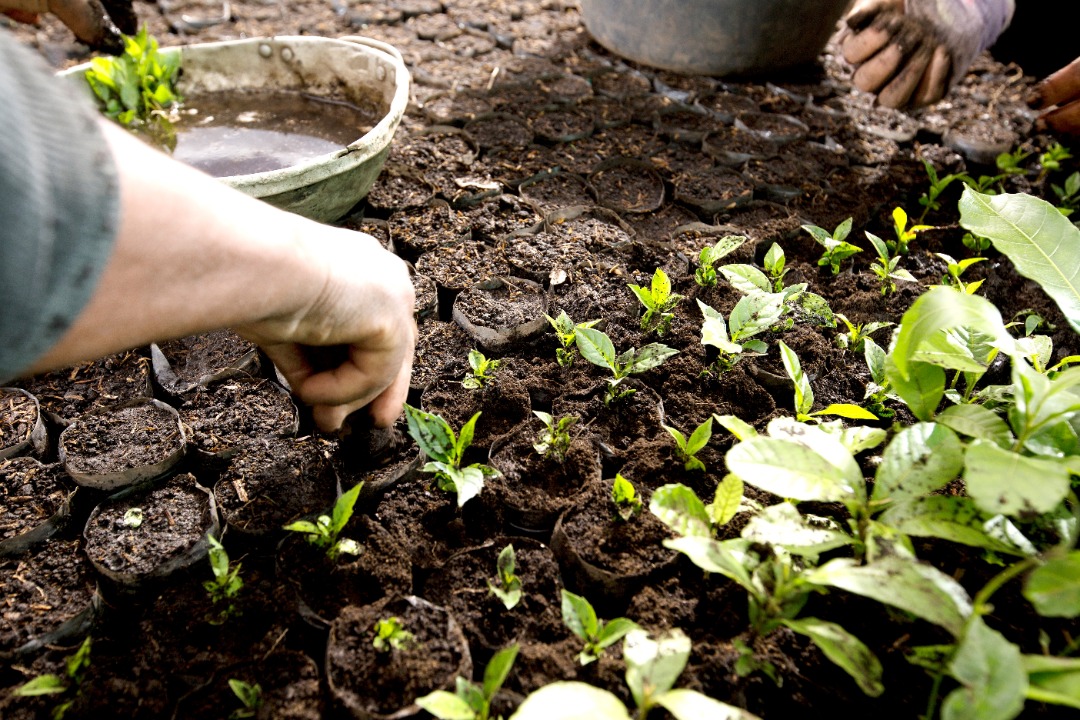Nestlé, the world’s largest food processing company, has unveiled a detailed roadmap of how it will contribute to fighting climate change.
The Roadmap, unveiled in an online press event with journalists from several countries, outlined how Nestlé will focus on supporting regenerative agriculture, making its products environmentally-friendly, and switching completely to renewable energy. This, the company says, will be done by redoubling efforts to combat climate change.
Nestlé states that, as a signatory to UN ‘Business Ambition for 1.5°C’ pledge, it has committed to be one of the first companies to share its detailed, time-bound plan ahead of schedule. The company pledged that, even as it grows, it is taking measures to halve its emissions by 2030 and achieve net zero by 2050.
Nestlé revealed that it has committed to support famers and suppliers to advance regenerative agriculture, plant hundreds of millions of trees within the next 10 years. It also pledged to transition to 100 percent renewable electricity by 2025, while increasing its number of ‘carbon neutral’ brands.
Nestlé Chairman, Paul Bulcke, said: “The Board recognises the strategic importance of taking decisive measures to address climate change. It supports accelerating and scaling up our work to ensure the long-term success of the company and to contribute to a sustainable future for generations to come.”
Nestlé revealed that it emitted 92 million tonnes of greenhouse gas emissions in 2018, which will serve as the baseline for measuring progress.
Nestlé CEO, Mark Schneider, stated: “Tackling climate change can’t wait and neither can we. It is imperative to the long-term success of our business,” he said, adding that: “We (Nestlé) have a unique opportunity to address climate change, as we operate in nearly every country in the world and have the size, scale and reach to make a difference. We will work together with farmers, industry partners, governments, non-governmental organisations and our consumers, to reduce our environmental footprint.”
At the online press event, Nestlé stakeholders outlined that the company’s plan to get to net zero spans three main areas.
The first area is in the sector of Agriculture, where it says it is already working with over 500,000 farmers and 150,000 suppliers to support them in implementing regenerative agriculturepractices. Nestlé says it is committing to co-investing and purchasing of farmers’ products in large quantities at a premium prize.
Nestlé is also scaling up its reforestation programme to plant 20 million trees every year for the next 10 years in the areas where it sources ingredients.
“More trees mean more shade for crops, more carbon removed from the atmosphere, higher yields and improved biodiversity and soil health,” Nestlé outlined.
The company also plans to complete the transition of its 800 sites in the 187 countries where it operates to 100 percent renewable electricity within the next five years. Nestlé’s global fleet of vehicles are expected to be switched to lower emission options by 2022.
Within its product portfolio, Nestlé outlines that it “is continuously expanding its offering of plant-based food and beverages and is reformulating products to make them more environmentally friendly.” It is also increasing the number of ‘carbon neutral’ brands offered to customers.
The company also outlined that its plant-based food will achieve carbon neutrality by 2022, with the rest of the Nestlé Waters category achieving the same by 2025.
Magdi Batato, Nestlé’s Executive Vice President and Head of Operations, said: “With nearly two-thirds of our emissions coming from agriculture, it is clear that regenerative agriculture and reforestation are the focal points of our path to net zero. These efforts will reduce emissions and improve biodiversity at scale. We will also continue to eliminate emissions from our operations and make improvements in our product portfolio. We have our work cut out for us and we are committed to delivering.”
The company plans to invest a total of CHF 3.2 billion, (approximately FCFA 2,000 billion) over the next five years to accelerate its work, including CHF 1.2 billion (approximately FCFA 725 billion) to spark regenerative agriculture across the company’s supply chain.
“These investments will be financed primarily through operational and structural efficiencies to keep this initiative earnings neutral,” Nestlé states.
Nestlé’s emissions reduction targets are approved by the Science Based Targets initiative (SBTi) as consistent with levels required to meet the goals of the Paris Agreement.
